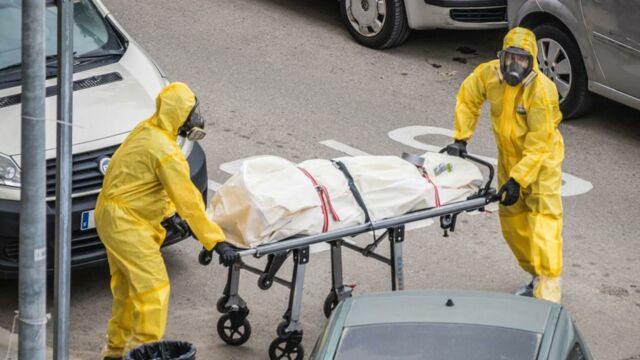When the coronavirus first started circulating in full strength at the beginning of 2020, the British government, like many others, adopted a full shutdown strategy to limit the daily cases and deaths in the country.
Discover our latest podcast
Lockdown measures
On 23 March 2020, Prime Minister Boris Johnson announced the first national lockdown in the UK and ordered everyone to stop non-essential travel and stay at home. The first lockdown was lifted in May, but in the following months, the country witnessed even more disastrous waves of infections and deaths. This prompted the government to reintroduce lockdown measures two more times, on 5 November 2020 and another on 6 January 2021. But to what extent did it really serve its purpose?
A new study published by researchers at Johns Hopkins investigated the impact of lockdowns specifically on the number of deaths caused by the virus. Unfortunately, their meta-analysis revealed that these harsh measures had ‘little to no impact on COVID mortality’ in Europe and the US. The authors wrote in the study:
More specifically, stringency index studies find that lockdowns in Europe and the United States only reduced COVID-19 mortality by 0.2% on average.
Read more:
⋙ COVID: Face masks are still required in these settings
⋙ Omicron: New study reveals who is most likely to get infected
⋙ COVID: X-rays reveal 'shocking difference' in lungs of vaccinated and unvaccinated patients
Ineffective pandemic policy
Researchers reached this conclusion based on a literature review they did of 24 different studies, including lockdown stringency index studies, shelter-in-place order studies, and non-pharmaceutical intervention studies. After analysing these studies, they found that shelter-in-place (stay at home) orders only reduced mortality rates by 2.9% and that NPI studies did not show any ‘noticeable effects.’
Given their findings, authors have stated that this policy is an ineffective method to deal with the pandemic, especially given their disastrous effects on the economy. They wrote:
While this meta-analysis concludes that lockdowns have had little to no public health effects, they have imposed enormous economic and social costs where they have been adopted. In consequence, lockdown policies are ill-founded and should be rejected as a pandemic policy instrument.
The study did however outline one policy that seemed to slow down the COVID death rate by 10.6%—the closing of non-essential businesses. Researchers stated that this could be related to the ‘closure of bars.’















